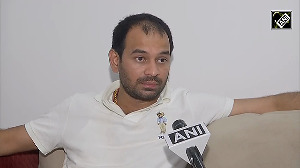Foreign private equity firms with deep pockets are now looking at investing in distressed assets in India, which offer them higher returns rather than the conventional method of picking up a stake in a company.
Barings Private Equity for instance, has a $150 million dedicated India-fund, which was raised recently, and it is now looking at investing in the retail space.
Subramaniam, who heads the operations in the country said, "We are looking at participating in the retail growth area. Instead of picking up a stake in big autmobile companies, we invest in component suppliers to such companies."
These companies may not always be doing well, but the private equity financiers take up the mandate of infusing capital and then turning around the company by putting in place a strategy in consultation with the management.
The pace is yet to pick up. Market sources say private equity players have huge piles of cash with them and are ready to invest in Indian projects but with the boom in the equity markets, fledgling companies are rushing to tap the capital markets for funds rather than turn to private equity firms. Investing in distressed assets give returns as high as 20 to 25 per cent.
Subramaniam explained, "Since investments in such assets are riskier as opposed to investing in a running venture, the returns are also higher."
Liquidity is also a concern, since it is much more difficult to exit from a real estate investment. Pharma is another sector, which Barings is looking at in India. There are private equity firms abroad, which specialise in such investments - identifying and picking up assets, which are distressed and then making a go of it.
In India there are many companies, which have not been profitable and are now struggling to stay afloat or are already insolvent.
The project itself may be viable but the promoters might not be getting the requisite capital or expertise to run it. This is when private equity firms step in.
K Sudarshan, managing partner with EMA Partners International, an executive search firm, said, "These are secondary market deals and it is coming into vogue, but slowly."
One of the main constraints in this kind of investments is the red tape involved in taking up assets, especially if they involve real estate. Mortgages and credit cards are also prospective sectors in this respect.
Sudarshan pointed out that investors would be looking at the safety aspects, while investing in such assets.







